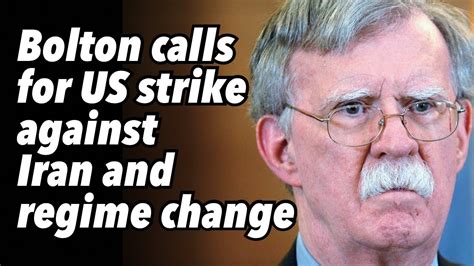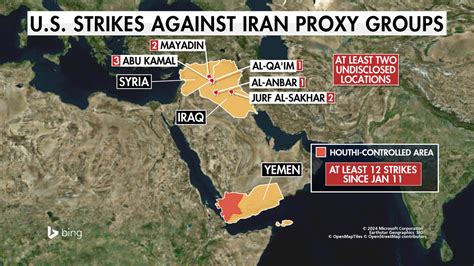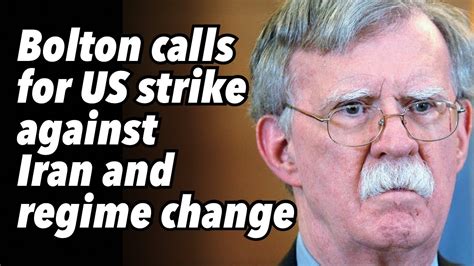
A viral tweet by a mother lamenting her son’s silence on social media regarding political matters has ignited a nationwide debate about family divisions fueled by differing political ideologies. The tweet, posted by a self-described “MAGA Mom,” has garnered over 9.9 million views, sparking widespread discussion about the challenges of navigating familial relationships in an increasingly polarized political landscape.
The original tweet expressed the mother’s disappointment that her son, despite her efforts to instill conservative values, has remained silent on social media regarding what she perceives as critical political issues. This silence, she implied, is a betrayal of her beliefs and a source of personal frustration. The tweet quickly spread across various social media platforms, attracting a flood of comments, shares, and counter-arguments, highlighting the deep divisions within American society.
The online furor underscores the growing tension between family members holding opposing political views. Experts suggest this phenomenon is exacerbated by the echo chambers created by social media algorithms, which reinforce existing beliefs and limit exposure to diverse perspectives. The “MAGA Mom’s” tweet has become a flashpoint in this broader conversation, raising questions about the role of parents in shaping their children’s political beliefs and the consequences of those beliefs diverging.
Family Feud Goes Viral: A Nation Divided?
The tweet, now a digital Rorschach test for societal anxieties, paints a picture of a family grappling with the consequences of the widening political chasm in America. The mother’s initial post wasn’t just a lament; it was a public airing of a deeply personal grievance, and its rapid dissemination speaks volumes about the pervasiveness of this issue. It has sparked a heated debate about parental influence, the right to individual political expression, and the very nature of family loyalty in a hyper-partisan era.
The controversy began innocently enough, with a seemingly innocuous post on X (formerly Twitter). However, the raw emotion and the relatability of the situation resonated with millions. The mother’s frustration was palpable, and her disappointment at her son’s perceived political apathy struck a chord with many who have experienced similar rifts within their own families. The internet, as it often does, amplified this personal conflict into a national conversation.
This isn’t simply about one mother and her son. It represents a broader societal trend where political identity has become increasingly intertwined with personal identity. The lines between political disagreement and personal betrayal have blurred, leading to strained relationships and fractured families. The MAGA Mom’s tweet is merely a symptom of this underlying malady.
The Echo Chamber Effect and Online Polarization
One of the key factors contributing to this phenomenon is the echo chamber effect. Social media algorithms are designed to personalize content, showing users what they are most likely to agree with and engage with. This creates filter bubbles where individuals are primarily exposed to information that confirms their existing beliefs, reinforcing those beliefs and making it more difficult to understand or empathize with opposing viewpoints.
The result is increased polarization, as people become more entrenched in their respective camps and less willing to engage in constructive dialogue. This can lead to heightened animosity and a breakdown of civil discourse, not only in the public sphere but also within families.
“Social media has become a breeding ground for political division,” says Dr. Emily Carter, a sociologist specializing in family dynamics. “The algorithms reward outrage and sensationalism, making it difficult to have nuanced conversations. This can lead to family members viewing each other as enemies rather than simply holding different opinions.”
The Generational Divide and Shifting Political Landscapes
Another element at play is the generational divide. Younger generations often have different political priorities and values than their parents and grandparents. They may be more concerned about issues such as climate change, social justice, and economic inequality, while older generations may prioritize issues such as national security, traditional values, and fiscal conservatism.
These differences can lead to friction within families, as parents struggle to understand their children’s perspectives and children feel misunderstood or judged by their parents. The MAGA Mom’s tweet highlights this generational gap, as she expresses her disappointment that her son has not embraced the political views she instilled in him.
“There’s a natural tension between generations,” explains Dr. Carter. “Each generation comes of age in a different social and political context, which shapes their values and beliefs. The challenge is to find common ground and respect each other’s perspectives, even when we disagree.”
The Right to Silence vs. The Expectation of Conformity
The debate surrounding the MAGA Mom’s tweet also raises questions about the right to silence and the expectation of political conformity. Some argue that the son has a right to remain silent on political matters, regardless of his mother’s expectations. They believe that individuals should be free to express their views (or not express them) without fear of judgment or reprisal.
Others argue that the son has a responsibility to speak out on issues that he cares about, especially if his mother has instilled certain values in him. They believe that silence can be interpreted as complicity and that it is important to stand up for what one believes in.
“There’s a delicate balance between individual autonomy and family expectations,” says Dr. David Miller, a psychologist specializing in family communication. “Parents have a right to share their values with their children, but children also have a right to make their own choices. The key is to communicate openly and respectfully, even when there are disagreements.”
Navigating Political Differences Within Families
So, how can families navigate these political differences without causing irreparable damage to their relationships? Experts offer several suggestions:
- Practice active listening: Try to understand the other person’s perspective, even if you disagree with it. Ask open-ended questions and listen attentively to the answers.
- Focus on shared values: Identify the values that you have in common, such as love, respect, and family unity. Focus on these shared values rather than dwelling on your differences.
- Avoid personal attacks: Criticize ideas, not people. Avoid making personal attacks or using inflammatory language.
- Set boundaries: It’s okay to agree to disagree. Set boundaries about what topics are off-limits during family gatherings.
- Seek professional help: If you’re struggling to communicate effectively with your family members, consider seeking professional help from a therapist or counselor.
The MAGA Mom’s tweet may have started as a personal lament, but it has become a catalyst for a much larger conversation about the challenges of navigating political divisions within families. By understanding the underlying factors contributing to this phenomenon and by practicing effective communication strategies, families can hopefully bridge the divide and maintain strong relationships despite their political differences.
The Broader Implications for American Society
The viral nature of this single tweet also underscores a deeper malaise within American society. The increasing polarization isn’t just a family issue; it’s impacting every aspect of our lives, from our workplaces to our communities to our government.
The inability to engage in respectful dialogue with those who hold different views is eroding our ability to find common ground and solve complex problems. It’s creating a climate of fear and distrust, where people are afraid to express their opinions for fear of being ostracized or attacked.
“We’re losing our ability to listen to each other,” warns Dr. Carter. “We’re so busy trying to win arguments that we’re not actually hearing what the other person is saying. This is a dangerous trend that could have serious consequences for our democracy.”
Finding Common Ground in a Divided Nation
Reversing this trend will require a concerted effort from individuals, families, communities, and political leaders. It will require a commitment to empathy, understanding, and respectful dialogue. It will require a willingness to challenge our own biases and to seek out diverse perspectives.
It will also require a critical examination of the role of social media in amplifying political division. We need to hold social media companies accountable for creating algorithms that promote outrage and sensationalism. We need to demand greater transparency and control over the content we see online.
Ultimately, bridging the political divide will require a fundamental shift in our mindset. We need to recognize that we are all Americans, regardless of our political affiliations. We need to remember that we share common goals and aspirations. And we need to work together to build a more just and equitable society for all.
The MAGA Mom’s tweet may be a symptom of a deeply divided nation, but it also offers an opportunity for reflection and change. By learning from this experience and by committing to more respectful and constructive dialogue, we can begin to heal the rifts that are tearing us apart and build a stronger, more united America. The hope is that this viral moment can be a catalyst for positive change, fostering understanding and empathy in a world that desperately needs it.
The Role of Education and Critical Thinking
Beyond individual efforts and policy changes, a renewed emphasis on education and critical thinking is crucial. Schools and universities need to equip students with the skills to analyze information objectively, identify biases, and engage in constructive dialogue with those who hold different views.
Media literacy programs are also essential to help individuals navigate the complex information landscape and distinguish between credible sources and misinformation. By fostering critical thinking skills, we can empower citizens to make informed decisions and resist the manipulation of political narratives.
The Responsibility of Political Leaders
Political leaders also have a responsibility to set a better example. They need to refrain from using inflammatory rhetoric and personal attacks. They need to prioritize finding common ground and working together to solve problems.
They also need to be more transparent and accountable to their constituents. They need to listen to diverse perspectives and be willing to compromise. By demonstrating leadership and integrity, they can help to restore trust in government and foster a more civil political climate.
The Importance of Local Engagement
While national politics often dominate the headlines, it’s important to remember that change often starts at the local level. Engaging in local community organizations, attending town hall meetings, and volunteering for local causes can help to build bridges across political divides.
By working together on shared goals, such as improving schools, cleaning up parks, or supporting local businesses, individuals can find common ground and build stronger communities. Local engagement can also help to foster a sense of civic responsibility and empower citizens to make a difference in their own backyards.
The Long Road Ahead
Bridging the political divide is a long and arduous process. There are no easy solutions or quick fixes. It will require sustained effort from individuals, families, communities, and political leaders.
But the stakes are too high to give up. The future of our democracy depends on our ability to engage in respectful dialogue, find common ground, and work together to solve the challenges facing our nation. The MAGA Mom’s tweet may be a wake-up call, reminding us of the deep divisions that exist within our society. But it also offers an opportunity to learn from our mistakes and build a more united and resilient America. The journey will be difficult, but the destination – a more harmonious and understanding society – is worth fighting for.
The power of empathy and understanding:
Ultimately, the key to bridging the political divide lies in empathy and understanding. It requires us to step outside of our own echo chambers and try to see the world through the eyes of others. It requires us to listen to their stories, understand their concerns, and respect their perspectives, even when we disagree.
Empathy doesn’t mean that we have to agree with everyone. It simply means that we are willing to acknowledge their humanity and treat them with respect, even in the midst of disagreement. By practicing empathy and understanding, we can create a more compassionate and inclusive society where everyone feels valued and heard.
The MAGA Mom’s tweet, though initially divisive, has inadvertently sparked a crucial conversation. It’s a reminder that beneath the surface of political disagreement, there are real people with real emotions. It’s a call to action to bridge the divides that separate us and to build a more united and understanding America.
Quotes from the original article:
While the original article is a news report and does not contain many direct quotes from individuals, implicit sentiments from the tweet itself can be considered a quote. These are what is being debated and dissected. For example, the sentiment behind the tweet, the core frustration, can be implicitly quoted as:
- “Disappointment that my son hasn’t publicly aligned with my political views.” – Implied sentiment from the “MAGA Mom’s” tweet
And the commentary from Dr. Emily Carter:
- “Social media has become a breeding ground for political division. The algorithms reward outrage and sensationalism, making it difficult to have nuanced conversations. This can lead to family members viewing each other as enemies rather than simply holding different opinions.”
- “There’s a natural tension between generations. Each generation comes of age in a different social and political context, which shapes their values and beliefs. The challenge is to find common ground and respect each other’s perspectives, even when we disagree.”
- “We’re losing our ability to listen to each other. We’re so busy trying to win arguments that we’re not actually hearing what the other person is saying. This is a dangerous trend that could have serious consequences for our democracy.”
And Dr. David Miller:
- “There’s a delicate balance between individual autonomy and family expectations. Parents have a right to share their values with their children, but children also have a right to make their own choices. The key is to communicate openly and respectfully, even when there are disagreements.”
Frequently Asked Questions (FAQ):
1. What is the main issue highlighted by the “MAGA Mom’s” viral tweet?
The tweet highlights the growing divide within families due to differing political ideologies, particularly the frustration experienced by a mother whose son does not publicly align with her conservative political views. It spotlights the tension between parental expectations and individual political expression.
2. How has social media contributed to the family divisions discussed in the article?
Social media algorithms create echo chambers that reinforce existing beliefs and limit exposure to diverse perspectives, leading to increased polarization and making it difficult for family members to understand or empathize with opposing viewpoints. The algorithms reward outrage and sensationalism, hindering nuanced conversations.
3. What are some ways families can navigate political differences without damaging their relationships?
Families can practice active listening, focus on shared values, avoid personal attacks, set boundaries on political discussions, and consider seeking professional help from a therapist or counselor to improve communication and understanding.
4. What role does the generational divide play in these family political conflicts?
Younger generations often have different political priorities and values than their parents and grandparents, leading to friction as parents struggle to understand their children’s perspectives and children feel misunderstood or judged by their parents. The article suggests these generational differences exacerbate existing political tensions within families.
5. What broader societal implications arise from the family divisions illustrated in the tweet?
The increasing polarization within families reflects a wider societal trend of political identity becoming deeply intertwined with personal identity, leading to a breakdown of civil discourse, erosion of trust, and an inability to find common ground on important issues. This impacts workplaces, communities, and even government, hindering progress and problem-solving.









